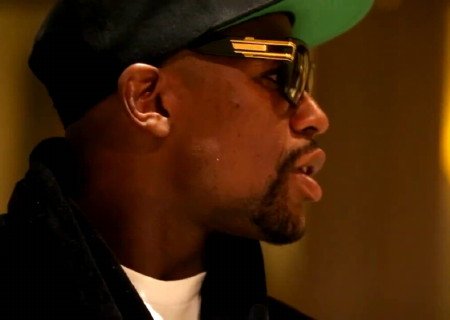By Thomas Choong: Every great fighter’s career is notably documented by their performances on the biggest stage. Though Floyd Mayweather’s detractors will belay the significance of his victory over pugilistic warrior Arturo Gatti as another over-hyped mismatch, pundits of the sweet science at the time will remember just how significant this matchup was at that time 10 years ago today .
Still promoted by Top Rank at the time, “Pretty Boy” Floyd Mayweather Jr. stood atop the pound for pound debate alongside long reigning middleweight champion Bernard Hopkins (who would lose his first bout in 12 years only three weeks later). The belt they would fight for was the WBC Super lightweight title, though few would have considered Gatti the champion of the 140 lb weight class. That distinction belonged to Ricky “Hitman” Hatton who had wrested the title from Kostya Tszyu (who had unified the WBC, WBA, and IBF belts in 2001) a mere three weeks prior. However, that did not detract from the attention that this bout garnered.
Arturo “Thunder” Gatti (God rest his soul) was a boxing icon. A four-time participant in Ring Magazine’s Fight of the Year, Gatti was a ring legend known for a granite chin, respectable punching power, and an indomitable spirit. In recent years, he had re-emerged as a contender under the tutelage of fast rising trainer and 2 division former champion Buddy McGirt. Although some considered his then-current state of stardom to be the product of good matchmaking, his recent epic trilogy with Mickey Ward still had momentum rising in his favor – particularly amongst his loyal fans in Atlantic City’s Boardwalk Hall.
For Mayweather, it seemed the sky was the limit for boxing’s undefeated heir apparent. Noteworthy victories over Genaro Hernandez, Angel Manfredy, Diego Corrales, and his second victory over Castillo highlighted a career of virtual perfection. A boxing maestro, his combination of speed, timing, accuracy, defensive prowess, and footwork made the formula for his demise an enigma to most. However, two moments of weakness in his career against lesser (at least in popularity) opponents would stand out in the minds of many fans: his close decision victory against Castillo in their first encounter showed that there was the possibility of him succumbing to an effective, aggressive onslaught. Fans also recalled the state of his brittle hands when he faced Carlos Hernandez in a bout he won handily with the exception of the sixth round where Mayweather would injure his hand and, grimacing in pain, allow it to touch the canvas for what would be the only official knockdown of his career.
Gatti was already an established draw at the gate, and had demonstrated himself to be a ppv draw on several occasions when given the right opponent. Mayweather himself had never headlines a ppv event and, for the first time in his career, played the “B” side to Gatti’s “A” side for this event (Mayweather’s fight against De La Hoya would be the only other). Although the betting odds favored Mayweather, many hoped that the bigger, stronger, and more seasoned Gatti could impose his attributes on Floyd to grind out a victory.
In terms of the promotion, Mayweather embraced the role of the villain and took advantage of every possible opportunity to berate his beloved opponent. In contrast, Gatti was fueled by this constant tirade of insults, and promised his fans that he would be the first to humble his loud-mouthed opponent. Mayweather’s taunting continued right up to the opening bell, where Mayweather, sitting on a throne, was carried into the ring with “Another One Bites the Dust” playing in the background to the chorus of boos emerging from predominantly pro-Gatti crowd.
As with all sports, watching the replay would never recapture the feelings I had watching the event the first time. All of the aforementioned skills that Mayweather possessed were on display, and Mayweather became only more dominant as the bout progressed. Gatti’s noted chin would be to his detriment on that evening as the constant one-sidedness of Mayweather’s assault would culminate with McGirt mercilessly stopping the bout after the sixth round.
Mayweather’s first foyer into pay-per-view was a success. He demonstrated both his ability to handle pressure while performing on the big stage, while also playing his part in promoting a pay-per-view event (at 340000 buys, it was a success, though a paltry number compared to his recent years of unprecedented drawing power).
As my brother and I walked out of the arena that night, I said to him: “You know when we talk about all time great fighters in their prime? We just saw that tonight.”
